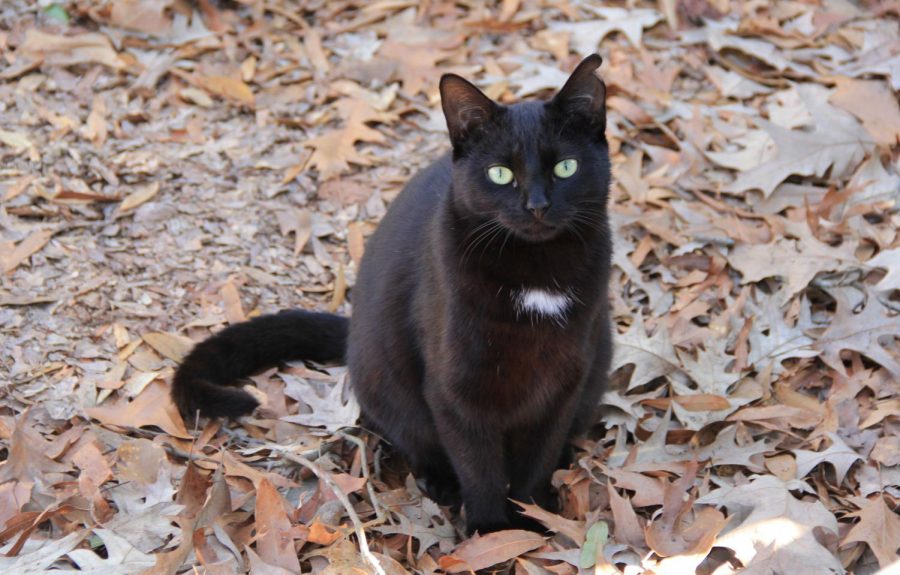FMU manage campus cat population
Photo by: Christina Xan
FMU administration members are managing the campus cat population by transporting cats to the Florence County Humane Society and spaying and neutering cats to reduce cat reproduction.
Over the next few weeks, FMU will begin efforts to manage the campus cat population more efficiently. Members of senior faculty along with FMU President Fred Carter, have all expressed their concerns for the rising number of feral cats on campus. After monitoring the issue for some time, steps to lower the population of cats and to neuter and spay existing cats on campus are being taken.
Daryl Bridges, vice president of development at FMU, said the conversation about the rising cat problem began a few months back. According to Bridges, he met with the senior staff members to discuss a plan to not only decrease the growing number of cats, but also to maintain the health and welfare of the cats that currently already reside on campus.
Bridges said while the goal is to do what’s best for the university, it is also to do what is best for the cats.
According to Bridges, some of the cats are considered “campus cats.” The plan is not to remove these cats, but to ethically gather them and make sure they receive appropriate health care and vaccines and then return them back to campus. The cats, which are all feral, will be marked to keep track of which ones have or have not been spayed or neutered.
Bridges said all of the cats are feral and reproduce rapidly. He said it is important that all of the efforts to control the cat population are being done in a humane and safe way for the cats and that no harm will come to them.
“All of the steps we are taking are for the cats’ well-being,” Bridges said. “Our goal is not only to reduce population by getting cats spayed or neutered, but we are also making sure that health treatment is given to any cat that needs that type of aid.”
Bridges said their goals are all long term and the efforts will be ongoing.
According to Bridges, it was very important to the administration that whatever plan implemented needed to first and foremost focus on the humane and ethical treatment of the cats while also integrating a method that would reduce the reproduction of the cats.
To maintain these desires for the plan, FMU partnered with the Florence County Humane Society to rehome kittens on campus.
The kittens, which initially needed health treatment, were taken in and nurtured by Carter and his wife, Folly Carter. Bridges said the kittens received amoxicillin and eye drops. Unlike the adult cats already living on campus, the kittens are not feral and are available for adoption.
FMU senior staff has been diligent in trying to locate good homes for the kittens in a number of ways. This includes reaching out to potential faculty and staff who would be interested in adopting kittens.
Bridges also said the cat problem at FMU is not an isolated situation. The feral cat population issue is not just limited to FMU. Coastal Carolina University went through a similar process last year to halt the rapid growth of cats on their campus, Bridges said.
“A lot of schools and universities across the nation face this and have implemented programs and initiatives like the one we have,” Bridges said. “What’s critically important about the route we have decided to take is that everything is done ethically, with absolutely no harm to the cats.”
Bridges said efforts to control the cat population will continue over the coming weeks.
